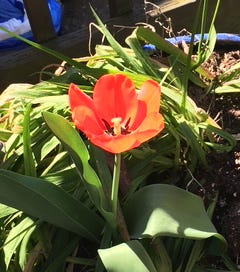“Eriserix” = Emotions
ema = love. gifa = hate/hatred. kim = to like/appreciate. nak-kim = dislike.
owa = good(ness). byum = bad(ness). (kyirba = evil/vile(ness).) onim = wellness. onimu = well. muh’wowa(u) = alright/okay. jenim = fine (but less than okay, in a negative sense).
yema = happiness. yemau = happy. bubun = sadness. bubunu = sad. egira = anger. egirau = angry. dira = fear. dirau = scared/afraid. huh’ig = gross/nasty/disgusting. uh’iyu = disgusted/unsettled.
zauwa = excitement. ikik = stress. one = ease. owaseri = pleasure/comfort. byuzeri = discomfort/displeasure.
Bigger Emotions: gowa = great(ness). gowayemau = ecstatic. kekubun(u) = distraught/upset. ababun = depression. hestibun = gloom.
“Sarazem” is a Dustword with no exact English translation, but “sarazemkith” can be translated as “infatuation,” and “sarazemninsh” means “infatuated.” (It does not mean “lust.” “Lust” was borrowed from English, actually.)
“E’hwuriserix” = Unhealthy Emotions
Many words for feelings that come with gowikik, the destructive emotional magic energy, were loaned from English, but here are some that were not: shuruh = envy/jealousy. kuyima = malice. hak’yechiu = begrudging. gifa menethim = loathing/bitterness. hakur mukith = vanity/proudness (slang).
Statement Examples
“In eriseri yema” = I feel happy. “In yemau” = I am happy. “In yema” means “I am happiness,” which is not the same thing as feeling happy.
Some adjective words can get the suffix “-u” removed from them and still be correct to express as a descriptive word. “In muhwowa” = “I’m O.K.”
“Tsu eriseri bubun?” = Do you feel sad? “Ai, in bubunu” = Yes, I am sad.
“Muh” = “be/is/are/am,” yet “muh” gets left out of many statements because being is implied by context in such statements. “Tin mun huh’ig” = This thing (is) gross. “In uh’iyu” = I’m disgusted.
“Tsu eriseri?” = How do you feel? “In muh ikiku” = “I am stressed.” (“In eriseri ikik” = I feel stress. “In eriseri ikiku” = I feel stressed. Either way is correct. Do not say “In muh ikik.” No, you are not stress itself.)
The Possessive Particle
“In” means “I/me,” and “inna” means “my/mine.” “-na” is the Yarzapan(na) suffix that indicates an object in the sentence belongs to the subject marked with “-na.”
“Tin muh inna suthi” = This is my rock.
“Tsuna yema muh gowau” = Your happiness is great.
“Hana medasuthi muh midesuthi” = His gemstone is (the) topaz.
“Nuna zemeno muh yar” = Her element is earth.
“Te yarna yarzathi” = The earth’s jasper.
“Tin yirna zemeno muh kekwi” = This year’s element is water.





